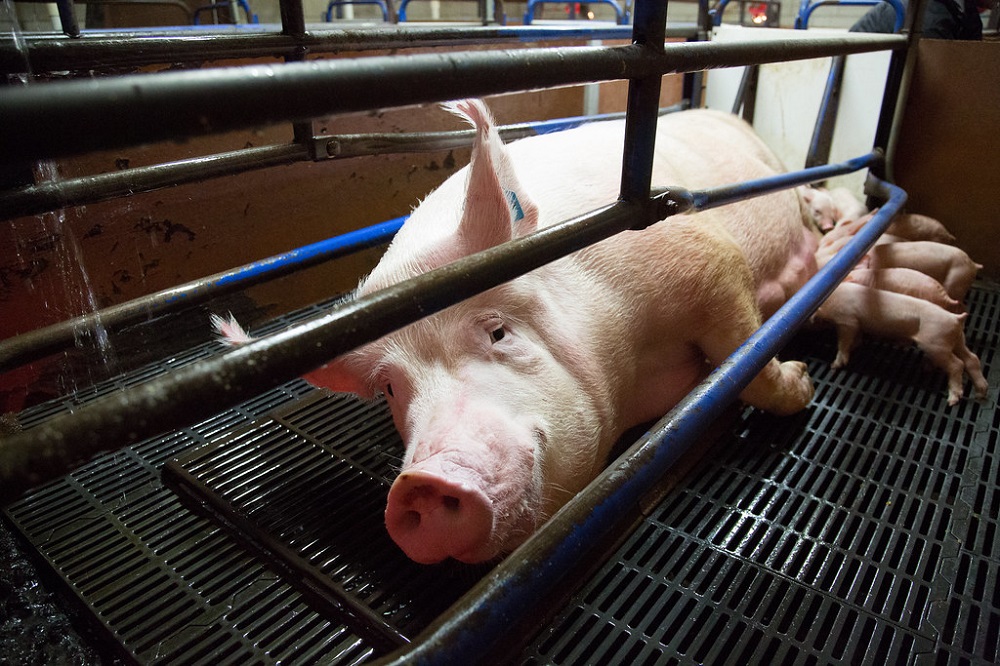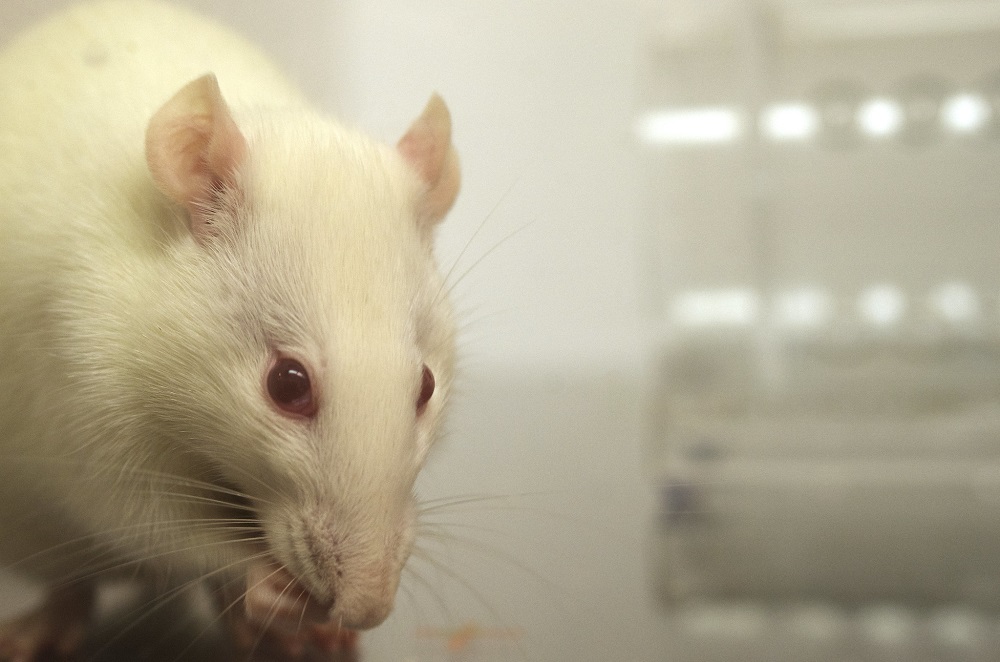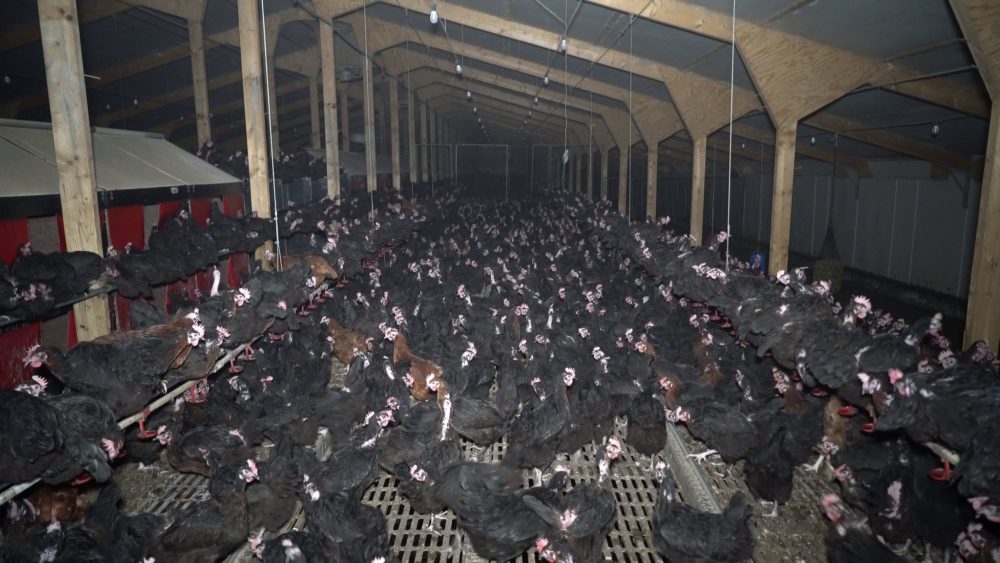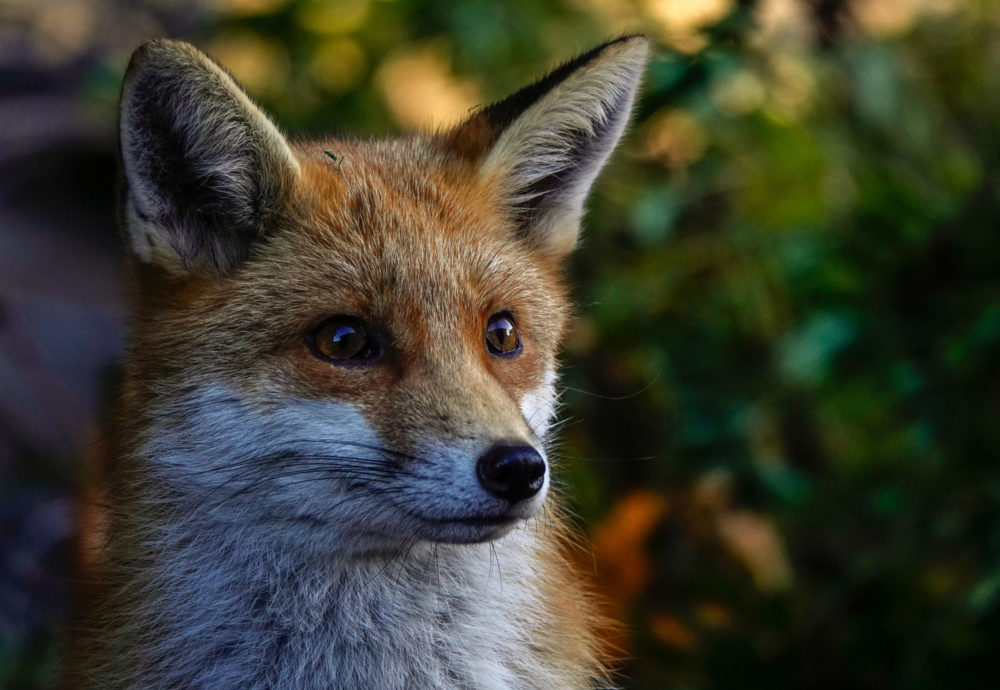RSPCA says we need to ‘radically rethink’ our relationship with all animals

The RSPCA says we need to “radically rethink” our relationship with all animals – as it reveals that in Wales there is a stark difference between what people think those living in our homes, in the wild, on farms or in labs deserve.
To mark its 200th year, the charity has launched a new ‘For Every Kind’ campaign
The charity reveals new polling which shows a stark difference in the way we see animals, depending on our relationship with them and says we have become disconnected to many of the animals around us.

According to a new poll, in Wales:
-
89% of people think dogs can experience positive emotions like happiness but only 36% think rats can – and just 43% think chickens can.
-
People were also more likely to think their pet deserved a ‘happy and healthy life’ (dogs 91%, rabbits 90%) compared to animals used in science (rats in a lab 64%, rabbits in a lab 72%).
-
And only 29% said they would be sad if pigs no longer existed in the world, compared to a whopping 81% for dogs.
Today (11 April), the world’s oldest animal charity – which has branches across Wales, including two national animal centres in Newport and Bryn-Y-Maen – is now launching a new campaign For Every Kind, urging people to care about the lives of every animal and carry out one million acts of kindnessto mark its 200th anniversary.

Chris Sherwood, Chief Executive of the RSPCA, said: “We are devoted to our cats and dogs, but we often don’t realise we are connected to billions of other animals in our lives, through the things we buy and the choices we make.”
‘Turning a blind eye’
He added: “All animals are amazing, but sadly we’ve come to see many creatures as commodities and we value their lives differently because of it.
“As a society, we love our native birds, but turn a blind eye to the suffering of billions of meat chickens; we love the hedgehogs who visit our garden, but treat rats and foxes as pests.
“We need to realise that all animals have feelings and emotions, many can feel joy, anger, fear, and more, and whether they are pets, wildlife, on farms or in labs, they deserve to have a fulfilled life of their own.”

The new figures also revealed there is a big difference in the way we see animals, depending on the role they play in our lives.
People are more likely to see a dog as a ‘friend’, and are more likely to see pigs or rats as ‘useful’, possibly due to being found on farms or in labs.
‘Pointless’
The majority of people saw foxes, who are often seen as vermin, as a ‘threat’ or ‘pointless’, suggesting they don’t recognise their right to a good life.
Chris continued: “All animals deserve our kindness and respect and the first step to changing the way we treat animals is changing how we see and feel about them.
“Which is why we are launching our For Every Kind campaign to mark our 200th year. A world that is better for animals, is better for us all.”
The For Every Kind campaign is launching with a new brand for the RSPCA – for the first time in 50 years – and a new advert which sees singing animals performing Aretha Franklin’s iconic hit to demand Respect.

The changes for the RSPCA come as it celebrates 200 years of changing animals’ lives and the charity says the challenges facing animals are ‘bigger than ever’.
Chris said: “This year marks our 200th anniversary – that means 200 years of changing laws, attitudes and behaviours towards animals.
“But animals are now facing some of the biggest threats in our history, from climate change to intensive farming, from the cost of living to the effects of the pandemic. Unless we act urgently, we risk animals’ lives getting worse, not better.
“The RSPCA has a critical role to play, but we can’t do this alone. We need as many people as possible to join us to build a better world for animals, which means we need people to look again at the RSPCA and what we can all do for animals.
“We hope a new, bolder and brighter brand will inspire everyone, whoever they are, to get involved with animal welfare so we can rise to the challenges facing animals now and for many years to come.”
To find out more about the RSPCA’s new campaign, visit: rspca.org.uk/everykind
Support our Nation today
For the price of a cup of coffee a month you can help us create an independent, not-for-profit, national news service for the people of Wales, by the people of Wales.







We are actually much better than our forefathers who basically killed anything that moved as evidenced by the near extinction of the koala and the extinction of many island species. Reading Victorian newspapers one gets an idea of the extent of the problem then when otters and foxes and other species were hunted. I read an account in a Breconshire newspaper about 1908 where an otter was seen by a bridge. The correspondent went on to write that unfortunately it vanished before a dog could be procured… That said it is amazing that houses full of neglected cats and skeletal… Read more »
Despite how the media portrays the situation nowadays and even though it was banned almost 20 years ago, hunting wild animals – foxes, deer, hares, mink, otters and others – still takes place, in front of, and colluded by, the police.
I don’t consume anything from an animal, I would like to all animal testing banned and for all creatures given respect and right to life that humans (are meant to) have.